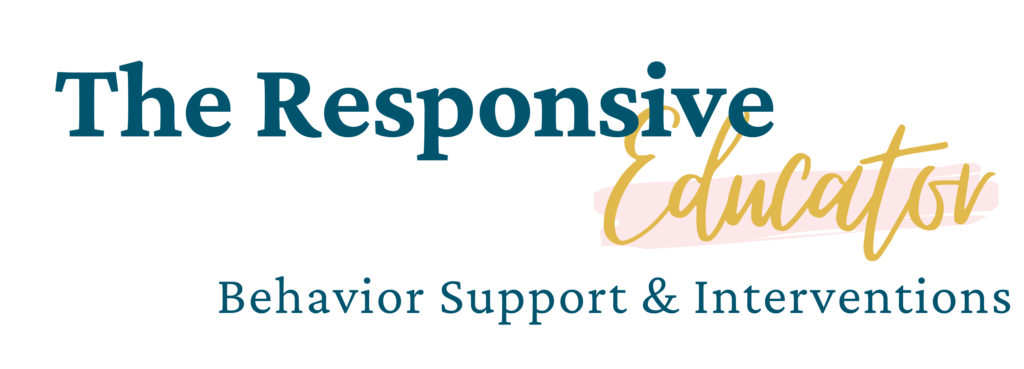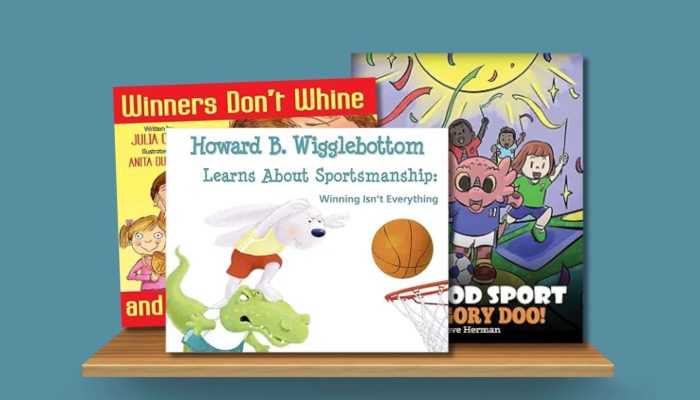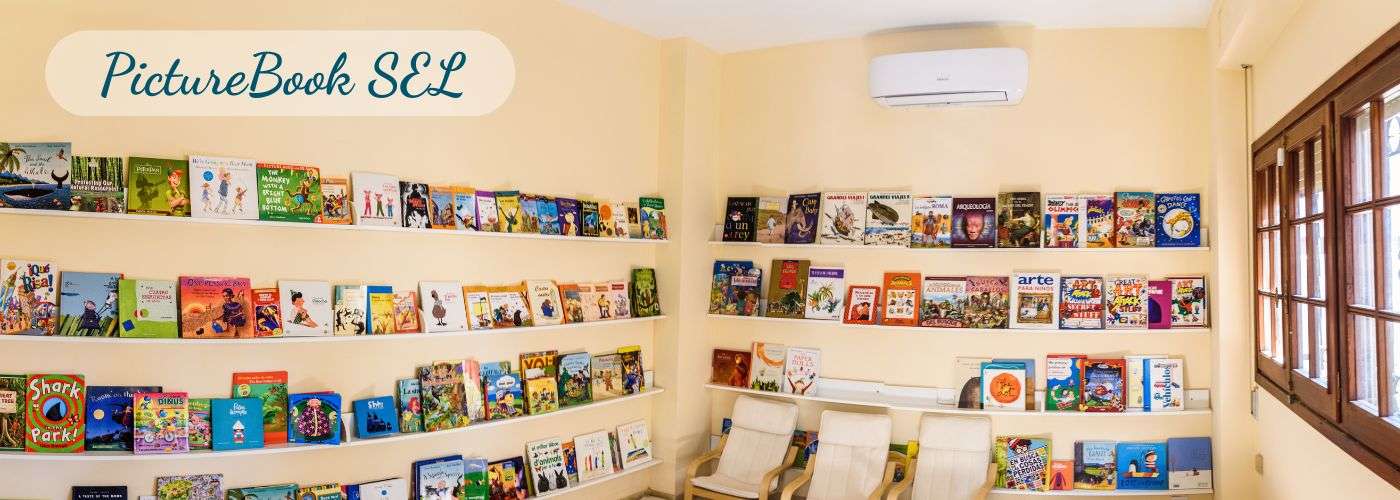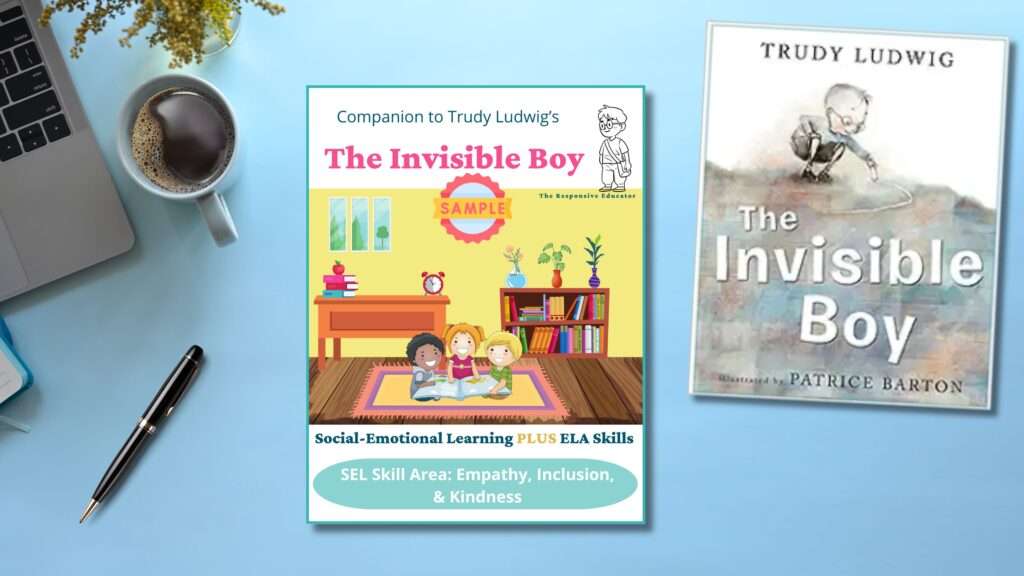


Learning how to be a good sport—whether you win or lose—is a skill every child needs, but it doesn’t always come naturally. These carefully chosen good sport books are perfect for helping kids understand sportsmanship, fair play, and how to handle winning and losing with maturity and kindness. Whether you’re a parent hoping to ease the sting of a playground loss or a teacher looking to foster teamwork and respect during games, these sportsmanship books offer relatable stories and teachable moments that make big lessons easier to understand. From accepting defeat to celebrating others’ successes, each book on this list supports social-emotional growth and helps children become better teammates—and better friends.
For some of these books, I have created interactive read-alouds to enrich their use in the classroom. These interactive read-alouds include discussion questions, activities, and prompts that engage students and deepen their understanding of the book’s themes. More interactive read-alouds are on the way. If there are specific books for which you would like to see a read-aloud created, please contact me using the form at the bottom of the page.
To learn more about supporting social-emotional learning and using interactive read-alouds in the classroom, check out these posts:
(As an Amazon affiliate, I earn a small commission if you purchase products through the links on my posts. Thank you for your support
Summary: Diggory Doo loves to win—but he’s terrible at losing. Whether he’s bragging when he’s ahead or blaming everyone else when his team falls short, this fiery dragon has a lot to learn about sportsmanship. In this fun and teachable story, Diggory’s behavior on and off the field leads to important conversations about how to treat others, how to handle losing, and why being a good sport matters more than the scoreboard.
Description: This teaching book from the My Dragon Books series is a clear, child-friendly introduction to good sportsmanship and the importance of handling both winning and losing with respect. Diggory’s exaggerated reactions—boasting, name-calling, tantrums—give kids an immediate visual of what not to do, followed by age-appropriate lessons in how to respond instead. The rhyming text and expressive illustrations are especially engaging for younger children, and the story offers natural openings for class or family discussions about competitive behavior, empathy, and emotional regulation. Ideal for ages 5–8.
Reviews and Considerations: Parents, teachers, and therapists alike highlight this book’s effectiveness in teaching kids what being a good sport really looks like. Readers consistently mention how relatable Diggory’s bad behavior is and how much children enjoy pointing out his mistakes and learning from them. Many note that the book has staying power—kids remember it and bring it up in everyday situations. For competitive kids who struggle with losing or need reminders to show humility when they win, this book is a fun and impactful resource.

Summary: Lucia Lacorte loves games—just not the part where she might lose. If things don’t go her way, she shouts and cries. If she wins, she celebrates with so much flair that no one else wants to play again. But when her grandpa turns the tables and acts just like she does, Lucia gets a taste of her own poor sportsmanship. This turning point sets the stage for Lucia to learn what it really means to be a good sport—and why that matters far more than any win.
Description: Told in catchy rhyme with a strong sense of humor, this story makes it easy for children to reflect on their own behavior in games and competition. Lucia’s over-the-top reactions—both to winning and losing—offer clear examples of poor sportsmanship, while her grandpa’s clever role-reversal provides a playful but effective lesson. As part of the Little Boost series, this book is especially well suited for preschool through early elementary classrooms. It’s a light, accessible way to introduce the social-emotional skill of self-control during play and to open conversations about fairness, empathy, and group fun.
Reviews and Considerations: Reviewers appreciate how Lucia Lacorte, Poor Sport manages to teach a meaningful lesson without feeling heavy-handed. The story resonates with young children who are still learning how to navigate the highs and lows of gameplay, especially those who may be overly competitive. Teachers and parents report that it sparks great discussions and that kids easily recognize Lucia’s behavior in themselves and others. With its rhyming text, cheerful illustrations, and satisfying resolution, it’s a go-to book for building better sportsmanship habits in a fun and age-appropriate way.

Summary: Wendell wants to win—at everything. And when he doesn’t, he whines. A lot. But after a particularly rough day where nothing goes his way, Wendell’s mom steps in to offer some much-needed perspective. Through her calm guidance, Wendell learns that losing doesn’t make you a loser, and that whining about challenges only makes them worse. With a memorable motto—“Winners don’t whine, and whiners don’t win!”—this story helps kids reflect on both the importance of effort and the value of attitude, win or lose.
Description: Like many of Julia Cook’s books, this story serves as a teaching book for key social-emotional skills. It blends humor, empathy, and practical strategies to address two challenging behaviors: the need to win and the tendency to whine. Wendell’s experience helps children understand that life isn’t always a competition, and learning from a loss is often more powerful than a win. The book includes specific, actionable tips at the end for teachers and caregivers to reinforce the message. Best for ages 5–9, this book is especially helpful for students who become easily frustrated, overly competitive, or need reminders about emotional regulation.
Reviews and Considerations: This book is widely praised by parents, teachers, and therapists for its effectiveness in helping children manage frustration, understand healthy competition, and reduce whining. Many reviewers mention that the catchy rhyme makes the core message easy to remember and use in real-life situations. Educators especially value the built-in discussion points and follow-up tips. While a few readers feel the focus is heavy on behavior correction, most agree that the tone remains child-friendly and supportive. For kids who struggle with both sportsmanship and self-control, this is a standout title in Julia Cook’s extensive SEL library.

Summary: Howard B. Wigglebottom loves to win—and hates to lose. When things don’t go his way, he’ll do anything to win: cheat, argue, blame, and even lash out at teammates. But during a soccer game gone wrong, Howard sees another adult acting out and finally understands just how his own behavior looks to others. That moment helps him realize that being a good sport matters more than winning. With help from his coach and team, Howard gets another chance—this time to play fair, share the spotlight, and enjoy the game for what it is.
Description: This picture book is part of the Howard B. Wigglebottom series, a popular collection designed to teach young children social-emotional and listening skills. In this story, Howard’s journey from sore loser to respectful teammate models emotional awareness and self-control in a playful but meaningful way. Children learn that fair play, teamwork, and trying your best are more important than always coming in first. The book ends with thoughtful discussion prompts and tips for teachers and parents. While the story is centered around soccer, the lesson applies broadly to sports, games, and classroom cooperation. Best for ages 4–7.
Reviews and Considerations: Educators and parents consistently praise this book for its relatable storyline and clear SEL message. Readers note that the story captures common issues around competitiveness—like cheating, tantrums, and poor sportsmanship—without being too extreme or unrelatable. Many children connect with Howard’s behavior and learn from his shift in perspective. The vivid illustrations and simple dialogue make it easy to follow, and the built-in lesson extensions add instructional value. This title is a strong classroom read-aloud and a helpful tool for kids who struggle with losing or playing as part of a team.

Summary: Wendy and Wade love playing Woggleball—but they don’t love losing. After a discouraging game, their grandpa steps in with timeless advice: winning isn’t everything, and every loss can teach you something valuable. As the story unfolds, Wendy and Wade shift their mindset from giving up to growing through perseverance, practice, and positivity. With gentle rhymes and relatable characters, this story makes the lessons of resilience and sportsmanship easy for young children to grasp and apply.
Description: This book is a picture book adaptation of John C. Maxwell’s bestselling leadership principle: failure is part of the path to success. Framed as a story about sports, it’s really a powerful teaching book about emotional growth. Children learn that setbacks don’t define them—they’re opportunities to reflect, learn, and try again. The rhyming text is engaging and accessible, and the illustrations are playful and expressive. Recommended for ages 4–8, this book works well for both classroom and home use, especially with children who tend to give up easily, get frustrated when they lose, or need support in developing resilience and a growth mindset.
Reviews and Considerations: Reviewers love how this book takes Maxwell’s big leadership ideas and translates them into language young children understand. Parents and teachers consistently report that kids relate to Wendy and Wade’s experiences and that the story becomes a helpful reference point during moments of frustration. Readers appreciate the positive, non-preachy tone and the added discussion questions at the end. Many parents note that the book sparked meaningful conversations about failure, practice, and attitude. While some younger children may need support with vocabulary or attention span, the core message resonates across a wide age range, making this a favorite for teaching both sportsmanship and emotional growth.

Summary: Sally loves to win—and she’s usually the first at just about everything. But when she doesn’t come out on top, her frustration boils over. Her classmates even start calling her “Sally Sore Loser.” With the guidance of her teacher and mom, Sally learns that good sportsmanship matters more than always being first, and that real winners are the ones who know how to have fun and play fair—win or lose.
Description: This book directly addresses both how to win graciously and how to lose with dignity, offering a complete and developmentally appropriate lesson in sportsmanship. Sally’s relatable struggles with competition, emotional control, and peer relationships make this a useful teaching book for early elementary students. The story includes specific language and strategies for children to use when they’re disappointed or frustrated, along with a helpful adult role model who provides practical, calm coaching. The final message—“I’ve won if I had fun!”—gives kids a simple, empowering phrase to remember and repeat. A Note to Parents and Educators at the end offers additional strategies for reinforcing good sportsmanship in everyday life.
Reviews and Considerations: Educators and parents frequently recommend this book for children who become upset or overly competitive during games and group play. Many reviewers mention it was immediately useful for family game nights, classroom lessons, or playground issues. Kids connect with Sally’s big emotions and gradually changing mindset, and the story gives adults a clear starting point for talking about expected behavior. While some critics wish it addressed the feeling of losing more directly, most agree the book strikes a helpful balance between correction and encouragement. It’s a well-loved choice for introducing the rules of good sportsmanship in both home and school settings.



Sign up now to receive a free sample of “The Invisible Boy” Interactive Read-Aloud Lesson Plan! This comprehensive resource includes engaging activities designed to help your students develop empathy and inclusion.
By signing up, you will also join our newsletter, where you’ll receive:
Join our community of educators dedicated to fostering social-emotional growth in the classroom!

( ) = Coming Soon
(Body Safety & Personal Boundaries)
(Bravery & Trying New Things)
(Conflict Resolution)
(Compromise / Cooperating)
(Coping with Change)
(Creativity & Imagination)
(Dreams & Aspirations)
(Dyslexia)
Feelings & Emotional Awareness
(Kindness & Generosity)
(Managing Physical Actions)
(Mindfulness)
(Organization & Planning)
(Peer Influence)
(Perseverance)
(Physical/Medical Disabilities)
(Positive Attitude)
(Sensory Processing)
(Separation Anxiety)
(Sharing)
(Speaking Politely)
(Teasing & Bullying)
(Technology)
(Trauma Recovery)
(Winning & Losing)